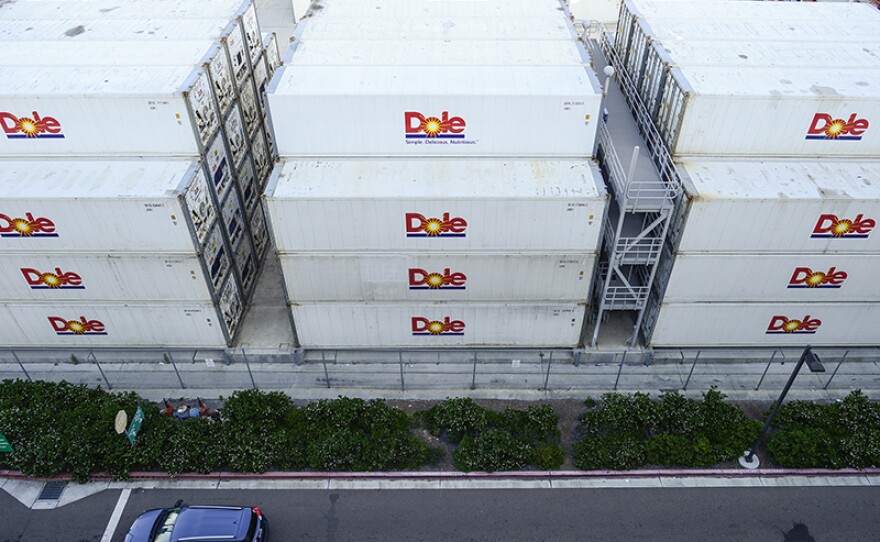Outside the 10th Avenue Marine Terminal on San Diego Bay this past weekend, you could hear more birds than work.
That’s because dockworkers are locked out from West Coast ports in what’s the latest development in a lengthy labor dispute. The Pacific Maritime Association and International Longshore and Warehouse Union, or ILWU, have been embroiled in contract negotiations for nine months. On Saturday, President Barack Obama ordered the U.S. labor secretary to California to try to help the two sides reach an agreement.

The stillness at San Diego port is playing out at more than two dozen other marine terminals from Seattle to Los Angeles. That means ships carrying cargo meant for elsewhere in the country must sit idle offshore until workers are allowed back in Tuesday.
This was the second weekend in a row there’s been a lockout. The maritime association claims dockworkers are purposely slowing down operations to gain the upper hand.
Pacific Maritime Association President and CEO James McKenna said the union initiated the delays as discussions deteriorated in the fall.
"Starting in October, the ILWU began to stage crippling work slowdowns that have now plagued maritime terminals from the Pacific Northwest to Southern California for more than three months," McKenna said in a video posted on YouTube Feb. 4.
The longshoremen refute this and say the association is using the news media against them.


In a video statement posted to YouTube one week after McKenna's, ILWU President Robert McEllrath urged union members to stay united.
"The [Pacific Maritime Association] is trying to divide us," McEllrath said. "They're using lies and tactics to turn the public against us and turn locals against the negotiating committee and the rank-and-file against each other."
San Diego is a smaller port and ships weren't scheduled to come in during the lockout, but larger places like Long Beach and Los Angeles are seeing a massive build up of ships.
Still, the lockout means fewer days that San Diego’s roughly 120 longshoremen can earn a pay check.
Overall, officials in Seattle say the work stoppages could be costing around $2 billion a day, according to a letter to the maritime association president from City Council members there.
However, Los Angeles economist Christopher Thornberg recently told PBS NewsHour the economic impact may be overblown.
"This may be a hassle and indeed even a financial hit for some companies, but on the macro sort of level, where we look at the winners and the losers, overall, it doesn’t really mean all that much for the U.S. economy, or even here in Southern California, as it may be," he told host Alison Stewart on Sunday.
During the lockout, the shipping companies continued some operations to move freight that had already been offloaded.
The union has said the two parties are close to an agreement, but the remaining debate is over who will arbitrate future disputes. The ILWU's roughly 20,000 dockworkers have been working without a contract since July.






